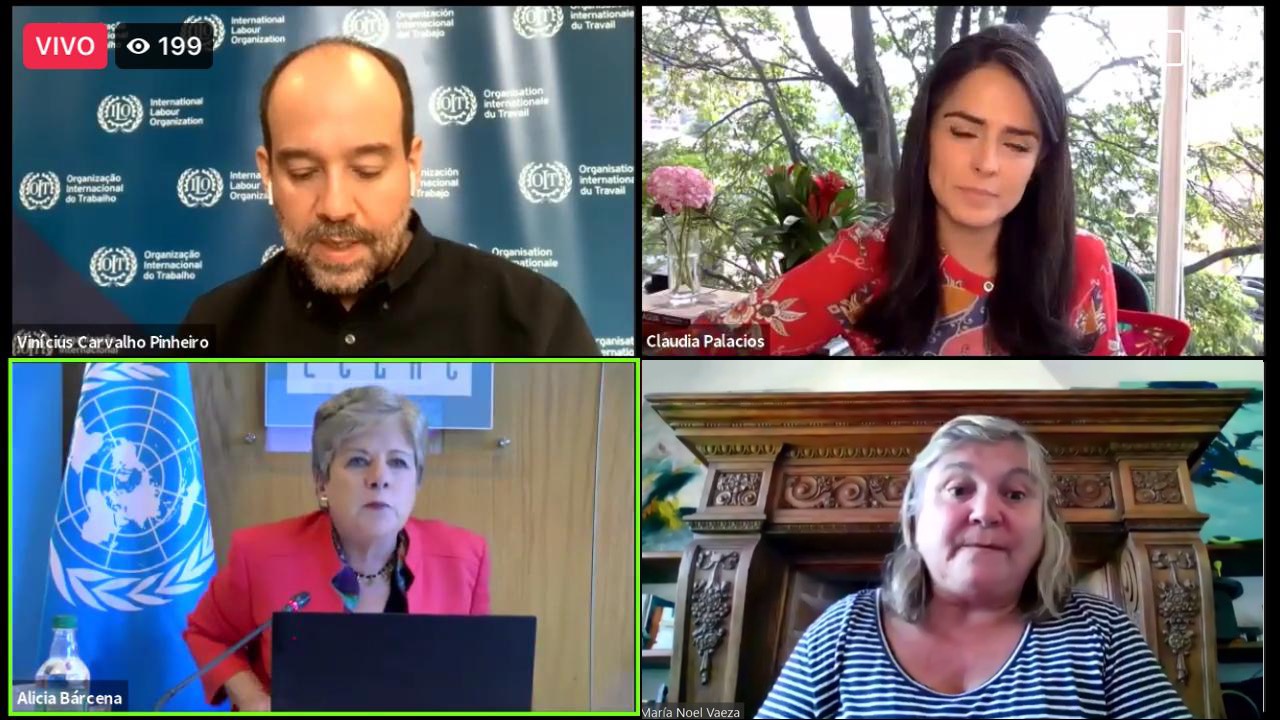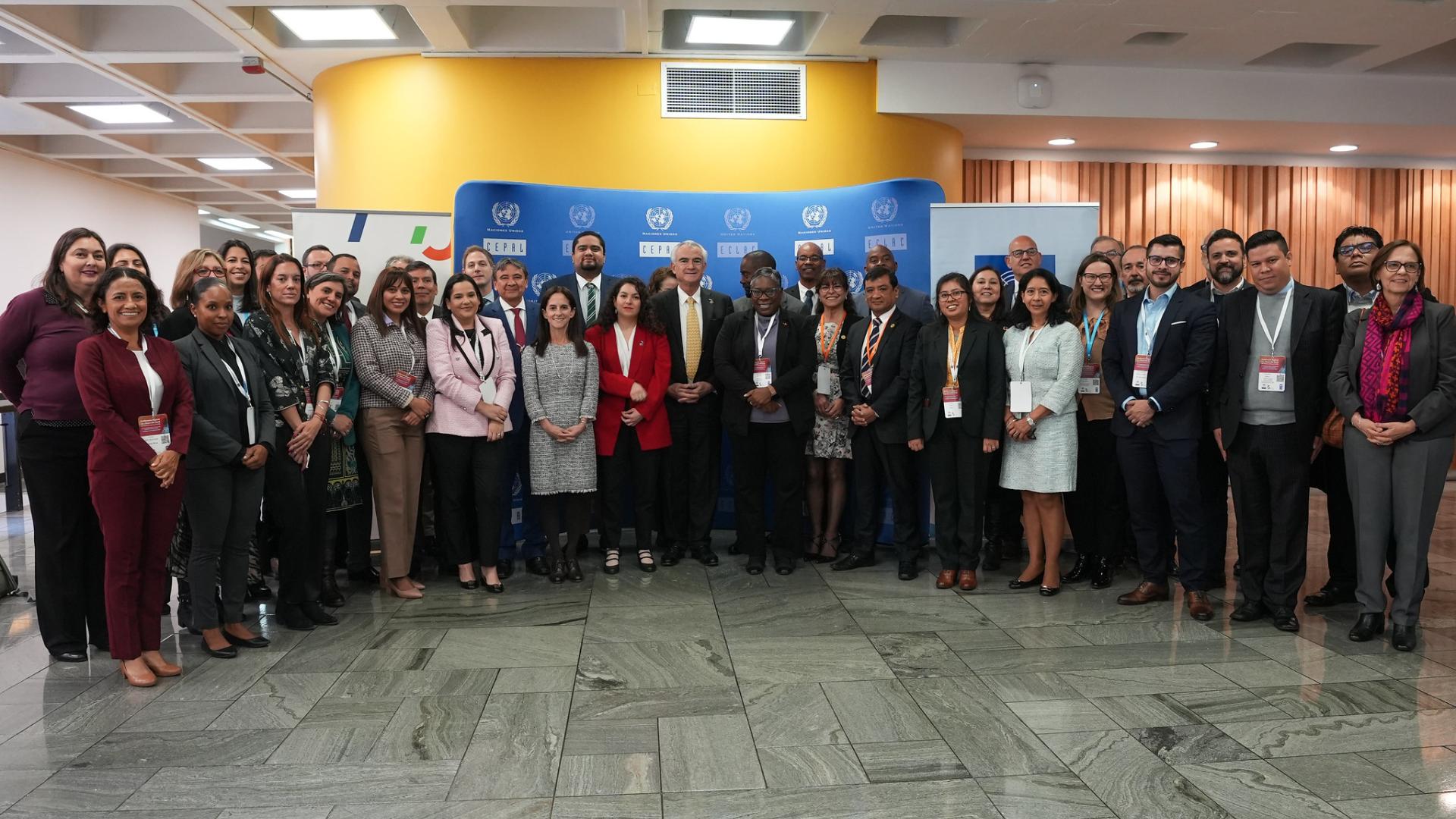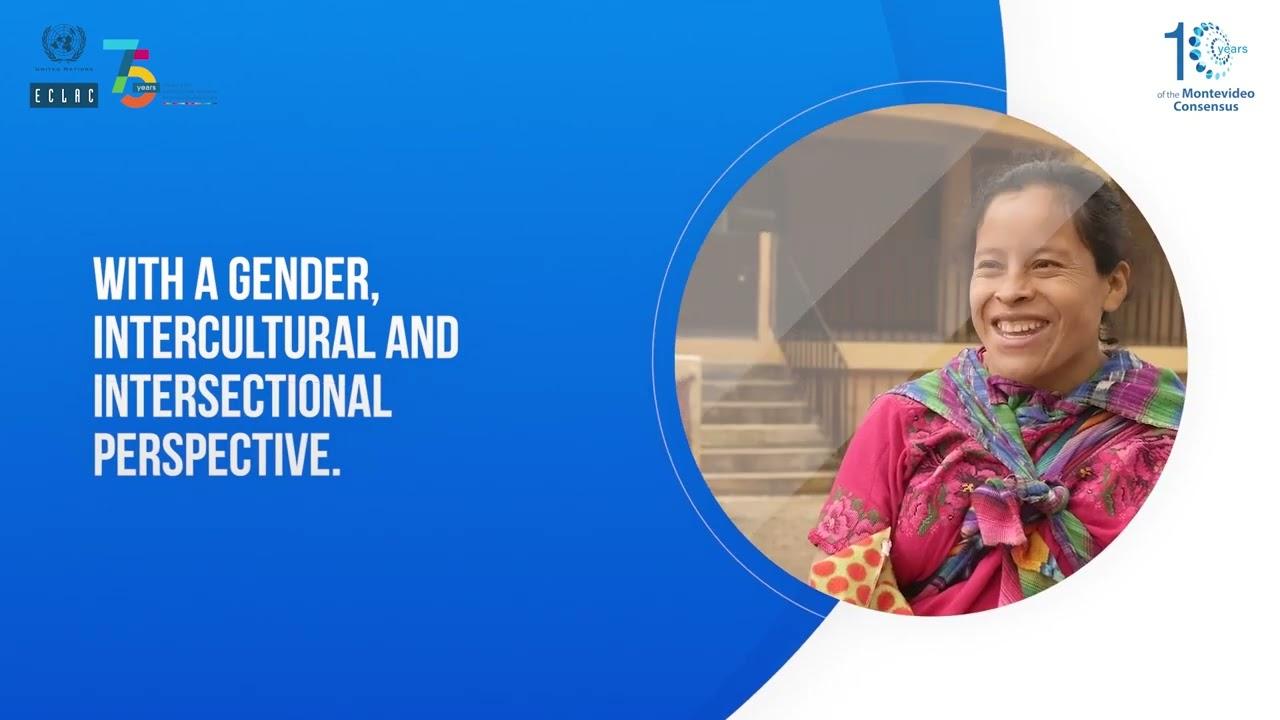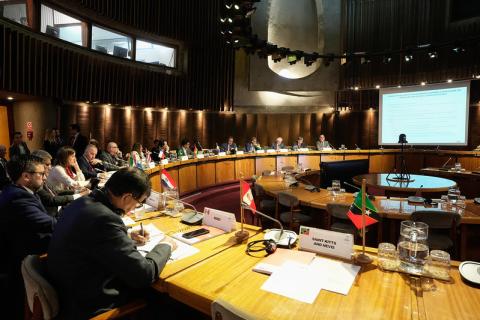Briefing note
Women’s economic autonomy is the key to a sustainable recovery with equality in the wake of the COVID-19 pandemic, and decent work with rights, digital inclusion and the care economy are among its drivers, Alicia Bárcena, Executive Secretary of the Economic Commission for Latin America and the Caribbean (ECLAC), indicated today during a high-level seminar held in the framework of International Women’s Day, which was commemorated worldwide on March 8.
The United Nations regional commission’s highest authority gave a presentation at this event entitled “Women’s digital inclusion and decent work in Latin America in the age of COVID-19,” organized jointly by ECLAC, UN Women and the International Labour Organization (ILO).
The seminar also featured the participation of Maria Noel Vaeza, UN Women’s Regional Director for the Americas and the Caribbean, and Vinícius Carvalho Pinheiro, Assistant Director-General of the ILO and its Regional Director for Latin America and the Caribbean.
In her presentation, Alicia Bárcena warned that the COVID-19 pandemic has deepened the structural constraints of inequality and produced a setback of more than a decade in women’s labor participation levels in the region.
Women are on the front line, with Bárcena citing the example of women who account for 73.2% of all health-sector workers but earn 21.7% less.
In addition, the burden of unpaid care has intensified for women and in the poorer quintiles, women lack both income and access to the Internet. Furthermore, Latin American labor markets have been marked by sharp labor segmentation with women concentrated in certain sectors of the economy, generally those that offer lower wages and more precarious working conditions: 56.9% of women in Latin America and 54.3% in the Caribbean are employed in sectors that ran a higher risk of employment loss and income reduction (commerce, tourism, paid domestic work).
She indicated that the pandemic led to the female unemployment rate rising to 22.2% in 2020 (based on the labor participation rate that existed in 2019). “We need a paradigm shift, a gender perspective in all public policy spaces,” Bárcena contended.
ECLAC’s Executive Secretary stressed in particular that women with lower income face a dual obstacle: a lack of economic autonomy and the gap in Internet access. She stated that 50 million households in urban areas have no Internet connection and the cost of fixed and mobile broadband, respectively, represents 11.6% and 14.3% of the income of households in the lowest quintile – a segment in which 39.1% of women do not have their own income.
“The lack of connectivity and digital gaps hinder telecommuting by women in the region,” she added. “That is why we insist that decisive affirmative actions are needed in the areas of taxation, employment, and productive, economic and social policies that would protect the women’s rights achieved in the last decade, avert setbacks and tackle gender inequalities in the short, medium and long term,” Alicia Bárcena explained.
“ECLAC proposes an emergency basic income equivalent to one poverty line for women who left the labor market due to the pandemic (14 million women) and a basic digital basket for the 50 million households that are not connected to the Internet. Four out of every 10 women in Latin America and the Caribbean would benefit from the basic digital basket,” she affirmed.
“The care economy must be a strategy for a transformative recovery,” she emphasized. “We need to create employment in the care economy, and both public and private investment are needed for that. The care economy costs money and up to now, it has been subsidized by women. It is a co-responsibility of the State, businesses, the community and families, it is not possible to keep overloading women with this. It is crucial that value be placed on women’s time,” Bárcena insisted.



